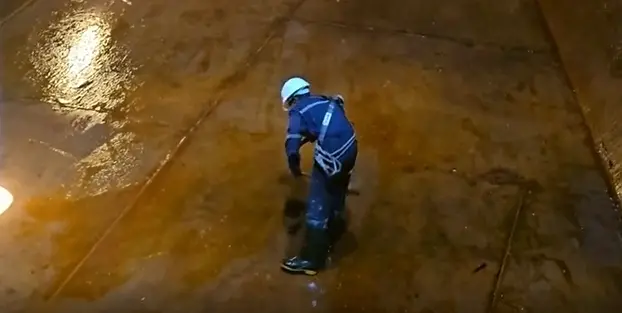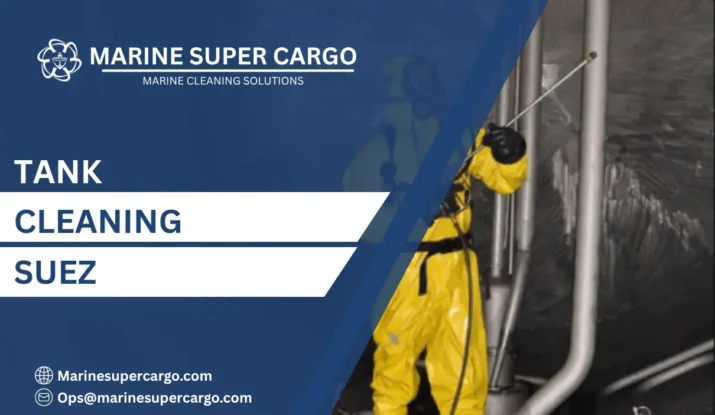The Suez Canal represents one of the world’s most strategically important maritime corridors, connecting Europe with Asia through Egyptian waters. Tank cleaning Suez operations require meticulous planning and strict adherence to environmental regulations governing this vital waterway. Vessels transiting the canal face unique challenges balancing operational requirements with environmental protection in restricted waters.
At Marine Super Cargo, we specialize in comprehensive tank cleaning Suez services that satisfy all regulatory requirements while minimizing transit delays. Our expertise in Egyptian maritime regulations ensures vessels maintain compliance throughout canal passage and anchorage operations. Tank cleaning Suez activities demand thorough understanding of MARPOL provisions and local enforcement practices.
Suez Canal Special Area Designation
MARPOL Special Area Status
The Red Sea area, including approaches to the Suez Canal, holds designation as a MARPOL Special Area under multiple annexes. Tank cleaning Suez activities fall under enhanced environmental protection requiring stricter waste management than open ocean operations. This designation prohibits or severely restricts discharge of various waste streams including tank washings and cargo residues.
Mediterranean Sea Restrictions
The Mediterranean Sea, accessed through the Suez Canal northern terminus, maintains separate Special Area designation. Tank cleaning Suez services must consider both Red Sea and Mediterranean restrictions depending on vessel routing and operational requirements. These overlapping jurisdictions create complex compliance scenarios requiring expert navigation.


Reception Facility Infrastructure
Port Said Facilities
Port Said at the canal’s northern entrance provides comprehensive reception facilities supporting tank cleaning Suez operations. Modern infrastructure accepts oil residues, chemical cargo washings, and garbage generated during cleaning activities. Marine Super Cargo coordinates with approved reception facilities ensuring efficient waste transfer and proper documentation.
Suez and Adabiya Options
The southern canal terminus offers additional reception capacity at Suez Port and Adabiya anchorage. Tank cleaning Suez services at these locations benefit from established maritime service infrastructure supporting thousands of annual transits. Facilities handle diverse waste streams from petroleum tankers, chemical carriers, and specialized vessels requiring cleaning between cargo operations.
Operational Planning Considerations
Pre-Transit Assessment
Vessels planning tank cleaning Suez operations should assess requirements well before canal approach. Cargo changeover scenarios, next cargo specifications, and available cleaning time determine whether operations occur during transit, at anchorage, or post-canal. The IMO recommends advance planning minimizing environmental risks while maintaining operational efficiency.
Coordination with canal authorities through agents ensures regulatory compliance and appropriate approvals. Tank cleaning Suez activities may require special permits depending on cargo types, waste quantities, and proposed disposal methods. Marine Super Cargo provides expert coordination services streamlining approval processes.
Timing and Scheduling
Canal transit timing significantly impacts tank cleaning Suez feasibility. Northbound and southbound convoys operate on fixed schedules limiting operational windows. Anchorage periods between convoys may provide opportunities for preliminary cleaning activities, though extended operations typically require dedicated anchorage time outside convoy schedules.
Waste Management Protocols
Retention Requirements
MARPOL Special Area provisions generally prohibit discharge of oil residues, chemical washings, and most garbage within Suez waters. Tank cleaning Suez operations must incorporate adequate slop tank capacity retaining all washings for subsequent shore disposal. Vessels lacking sufficient retention capacity face operational restrictions potentially delaying transits.
Documentation Standards
Egyptian authorities require meticulous documentation of all tank cleaning Suez activities. Oil Record Books and Cargo Record Books must contain detailed entries recording cleaning methods, waste quantities generated, and disposal arrangements. Reception facility receipts provide critical evidence of compliant waste management.
Inspection teams may board vessels at any point during canal transit or anchorage, examining records and physical tank conditions. Discrepancies between documentation and observed conditions trigger enforcement actions potentially including fines, detention, or transit denial. Marine Super Cargo ensures comprehensive documentation supporting regulatory compliance.
Egyptian Authority Coordination
Suez Canal Authority Requirements
The Suez Canal Authority maintains operational control over vessel movements and activities within canal waters. Tank cleaning Suez operations require coordination through authorized agents who facilitate communications with relevant authorities. Approvals depend on proposed cleaning methods, waste management plans, and demonstrated compliance capabilities.
Environmental Protection Agency Oversight
Egypt’s Environmental Affairs Agency enforces national environmental regulations complementing MARPOL requirements. Tank cleaning Suez operations fall under agency jurisdiction with inspectors authorized to examine vessels and assess compliance. Local regulations may exceed minimum MARPOL standards, requiring vessels to satisfy enhanced environmental protection measures.
Technical Service Providers
Professional service providers like Marine Super Cargo offer complete tank cleaning Suez solutions including crew provision, equipment supply, and regulatory coordination. Experienced teams understand local requirements and maintain relationships with authorities facilitating efficient approvals. These services prove particularly valuable for operators unfamiliar with Egyptian procedures or requiring rapid turnaround during cargo changeovers.
Frequently Asked Questions
Q1: Can vessels discharge tank washings in Suez Canal waters?
No, MARPOL Special Area restrictions prohibit most discharges requiring retention for shore disposal at reception facilities.
Q2: How long does tank cleaning at Suez anchorage typically require?
Operations range from 24-72 hours depending on cargo type, tank quantity, and required cleanliness standards.
Q3: Are reception facilities available at both canal entrances?
Yes, Port Said in the north and Suez/Adabiya in the south offer comprehensive reception capacity for various waste streams.
Q4: What documentation is required for tank cleaning in Egyptian waters?
Detailed Oil Record Book or Cargo Record Book entries plus reception facility receipts proving compliant waste disposal.
Q5: Can tank cleaning occur during canal transit?
Limited preparatory activities may occur during transit, but substantial cleaning requires anchorage time outside convoy schedules.
Trust Marine Super Cargo for professional tank cleaning Suez services ensuring compliance, efficiency, and operational excellence throughout Egyptian waters.


